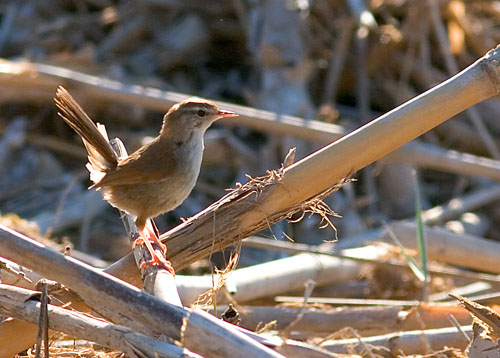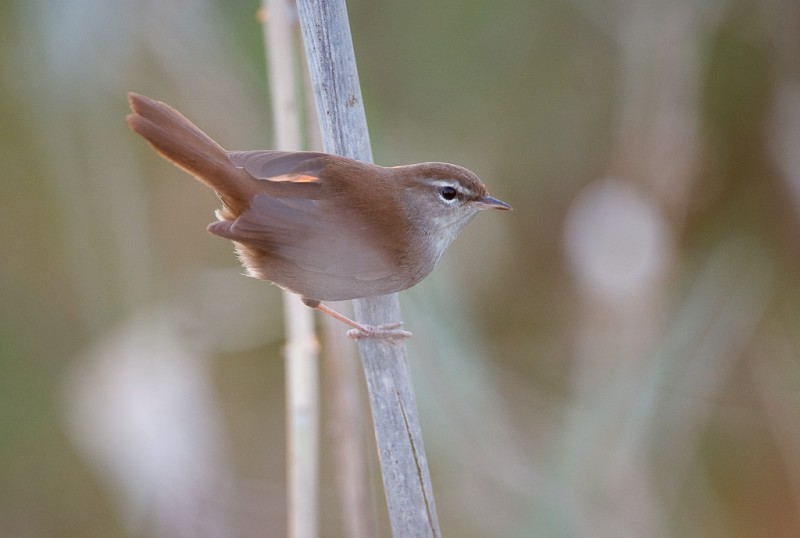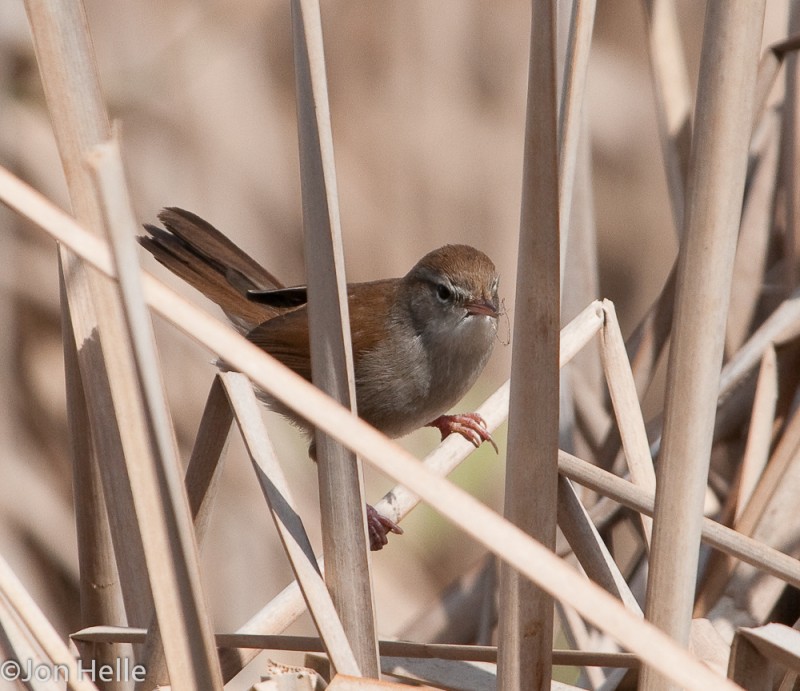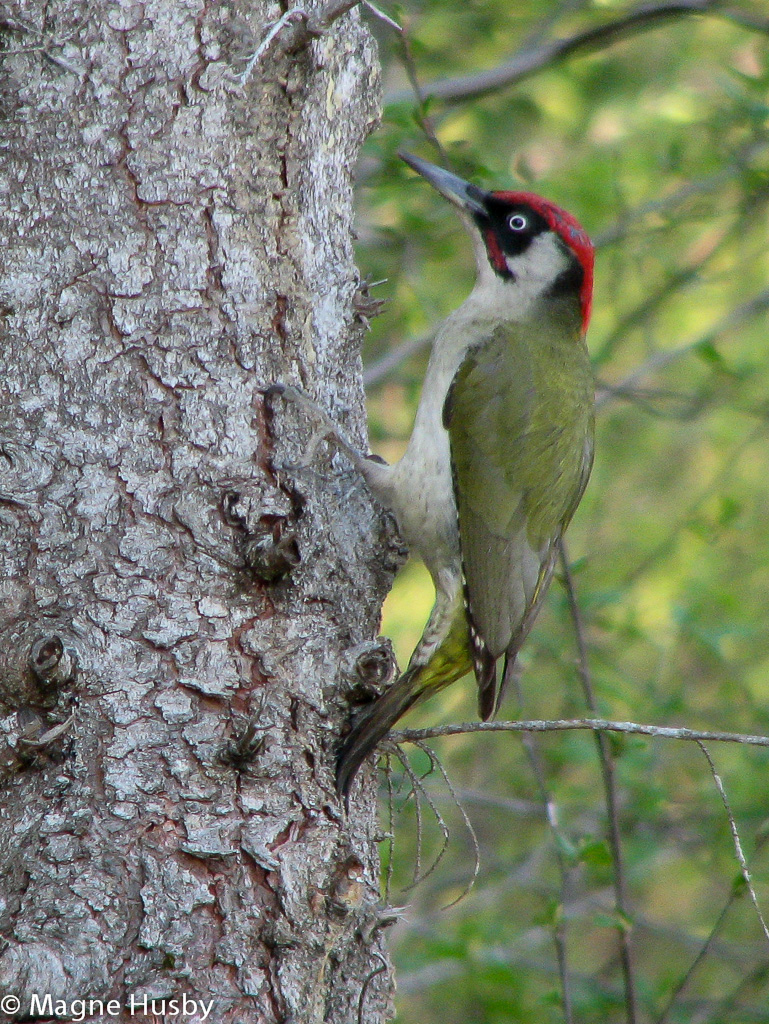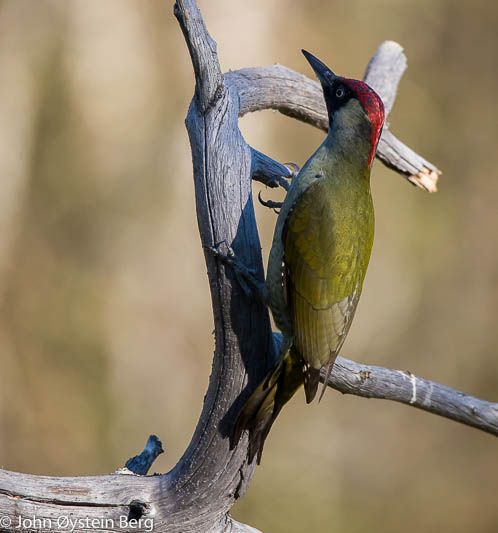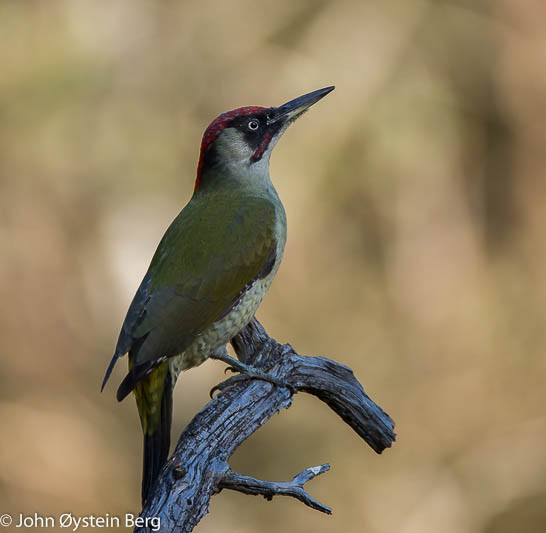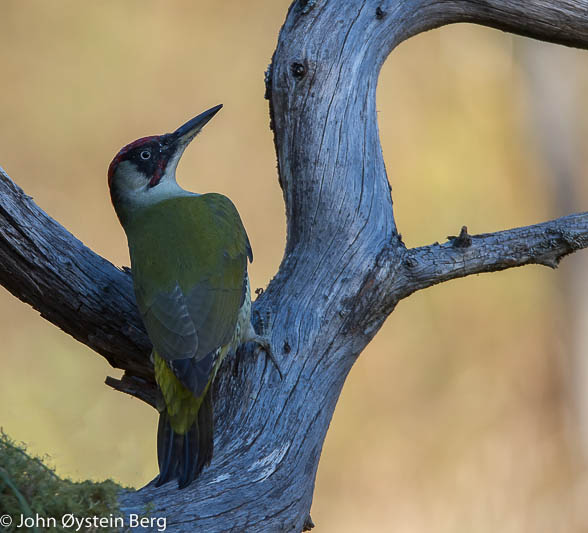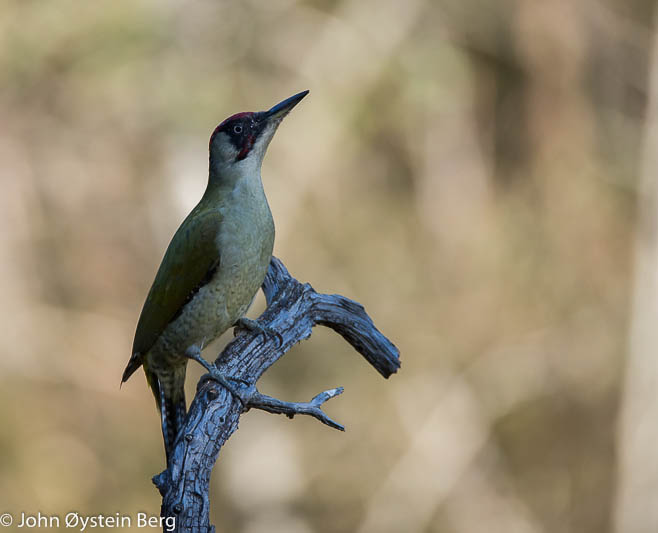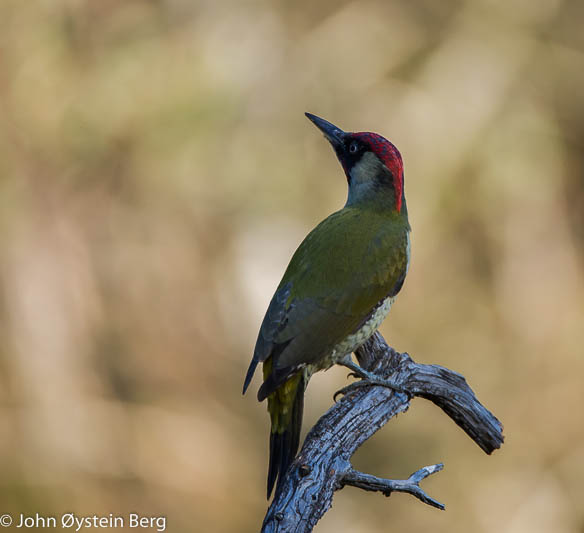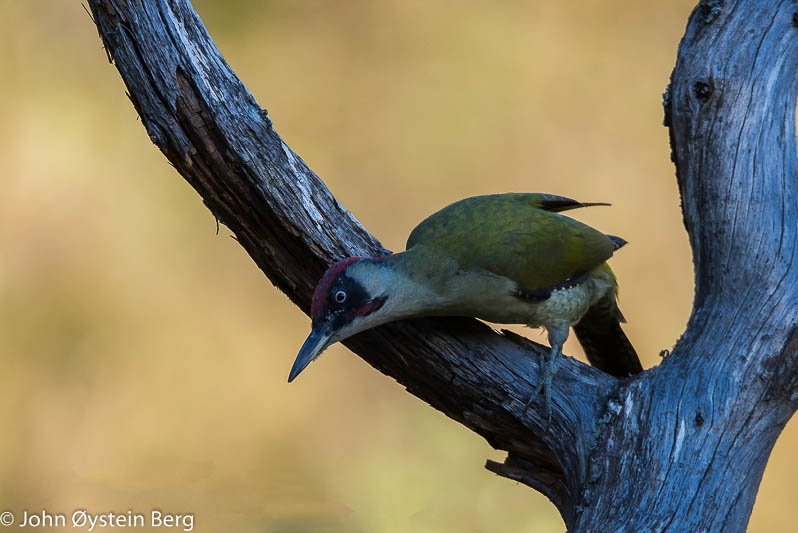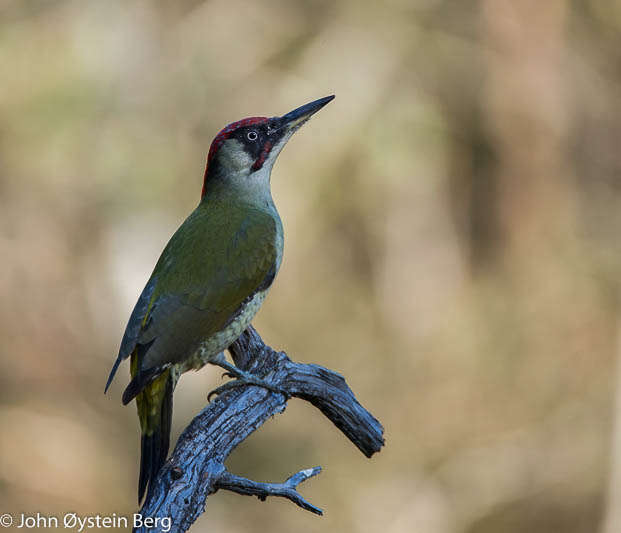Cetti's Warbler (Cettia cetti)
Green Woodpecker (Picus viridis)
Small, warm buff warbler with skulking behaviour, but conspicuous song. Similar in size to Reed Warbler, but with short, rounded wings and rounded tail. Build fairly compact, but bill thin and slender. Supercilium thin and dull. Cheeks and underparts greyish white, lacking the purer white belly of confusion species. Pale eye-ring. Under tail-coverts usually brown with pale fringes. Often flicks tail or holds it raised. Usually hides among undergrowth, and shows itself only when moving from one shrub to another.
Sound:Contact call a short, metallic, ascending "vitt". Often given in rapid series. Song diagnostic, and readily given throughout the year. Phrases last from 2 - 5 seconds, consisting of a few loud, clear and rapid glissandi, given in approximately same register. E.g. "cetti cetti cetti", usually with a few introductory notes, and some variation to the phrase. Overall a very explosive, and with a staccato rhythm.
Song:
Distribution:
Xeno-canto: map
Ecology:Birdlife ecology
Links:
Observation.org Latest observations
Image search Flickr NB! May give other species
CCMedium sized, green woodpecker with black mask. Crown red in all plumages. Females with black moustache stripe, males with red framed in black. Juveniles heavily marked with small black and white spots all over, and less prominent black mask. Bigger and more heavily built than Grey-headed Woodpecker, with longer and stouter bill. Often foraging on the ground. Flight undulated.
Sound:Song similar to Grey-headed Woodpecker, but not as soft and fluty. Each phrase consist of a series of short "klee", with a laughing quality. Pitch drops slightly throughout the phrase, but not as markedly as in Grey-headed, and tempo is fairly constant (no ritardando). Short "kek" calls when excited and in flight. Drumming of 1.5 seconds duration with decelerating tempo, but not often heard. Another call is similar to Black Woodpecker; a series of resonant "klit-klit-klit-klit-klit-klit", but is less clear, has a more determined start and has less obvious rising pitch at the end of each syllable.
Song:
Distribution:
Wikipedia: map (se also Xeno-canto below)
Ecology:Birdlife ecology
Links:
Observation.org Latest observations
Image search Flickr NB! May give other species
CC
 English
English Albanian
Albanian
 Armenian
Armenian
 Bulgarian
Bulgarian
 Catalan
Catalan
 Croatian
Croatian
 Czech
Czech
 Danish
Danish
 Dutch
Dutch
 Finnish
Finnish
 French
French
 Georgian
Georgian
 German
German
 Greek
Greek
 Hungarian
Hungarian
 Italian
Italian
 Latvian
Latvian
 Lithuanian
Lithuanian
 Macedonian
Macedonian
 Norwegian
Norwegian
 Polish
Polish
 Portuguese
Portuguese
 Romanian
Romanian
 Russian
Russian
 Sami : Lule sami
Sami : Lule sami
 Sami : North sami
Sami : North sami
 Sami : South sami
Sami : South sami
 Scientific names
Scientific names
 Serbian
Serbian
 Spanish
Spanish
 Swedish
Swedish
 Ukrainian
Ukrainian


